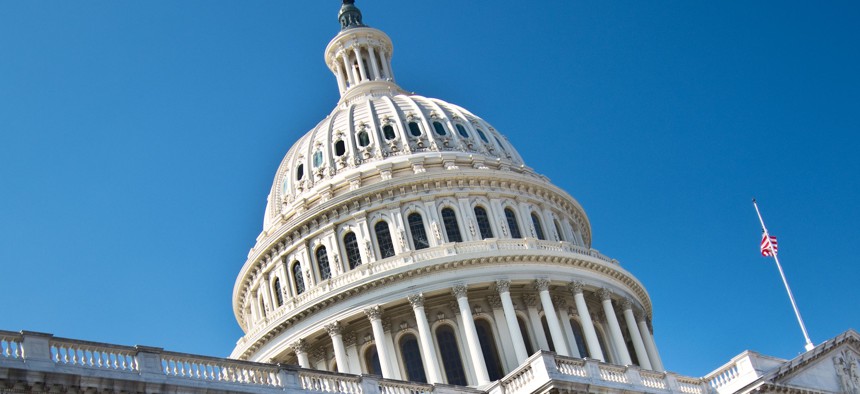House Lawmakers Form New Caucus of Former Local Officials

iStock.com/Douglas Rissing

Connecting state and local government leaders
"If an issue is important to our local governments, it should be important to Congress, too," said one of the group's co-chairs.
Eighteen members of the U.S. House said Wednesday that they'd formed a new caucus of former local elected leaders that will focus on bringing more attention to local government priorities on Capitol Hill.
The National League of Cities and National Association of Counties coordinated with lawmakers in creating the group, formally dubbed the Congressional Caucus of Former Local Elected Officials. One in four members of Congress are prior local elected officials—about 112 in the House and about 24 in the Senate, Matt Chase, the CEO and executive director of the National Association of Counties, noted on Wednesday during an online event announcing the group.
"This caucus will play a critical role in Congress leveraging their experience and expertise to improve federal decision making with an eye on how it'll impact our nation's local communities," Chase said.
The group's formation comes at a pivotal moment, as cities, counties and towns look to recover from the coronavirus pandemic, while continuing to respond to the public health crisis.
Localities are also seeing a historic influx of federal aid from the $1.9 trillion relief measure that President Biden signed in early March. And the White House is now pushing for a roughly $2 trillion package that would make sizable new investments in the nation's infrastructure—something that local leaders have pushed hard for in recent years.
The pandemic put a spotlight on the relationship the federal government has with states and localities and the roles of different levels of government. But cities and counties have other concerns that predate the virus that the new caucus could lend support with.
For instance, many city and county leaders believe more federal dollars should go directly to the local level instead of through states, that local officials should have more input in federal regulatory processes that affect localities, and that federal mandates that require local action should come with funding attached.
"We don't know exactly where this is gonna go, but we know it's gonna go to good places," said Rep. Greg Stanton, an Arizona Democrat and one of the caucus co-chairs. "If an issue is important to our local governments, it should be important to Congress, too."
"You'll have an ally with this caucus," added Stanton, who served as mayor of Phoenix from 2012 to 2018.
Other co-chairs include: Reps. Gerald Connolly, a Virginia Democrat; David Joyce, an Ohio Republican; and Kay Granger, a Texas Republican. (A full list of caucus members can be found here.)
For Connolly, a former chairman of the Board of Supervisors in Fairfax County, Virginia, it's the second time in recent years he's been involved with a group focused on intergovernmental issues. The congressman was also the top Democrat on a special panel known as the Speaker’s Task Force on Intergovernmental Affairs.
That group, chaired by former U.S. Rep. Rob Bishop, a conservative Republican from Utah, held a series of hearings between 2017 and 2018 that delved deep into the weeds of how states and localities interact with the federal government.
Connolly and Bishop later co-sponsored a bill that called for reviving and reworking the U.S. Advisory Commission on Intergovernmental Relations, a body that was active between 1959 and 1996 and sought to foster cooperation between state and local governments and federal policymakers.
On Wednesday, Connolly raised the idea that he might be able to work with the other caucus members to take another run at getting that legislation passed. "I think we do need a mechanism for talking about the relationships among these levels of government and teeing up issues before they become huge problems," he said.
"Many of our colleagues do not have a background in local government," Connolly added. "And it shows."
Bill Lucia is a senior editor for Route Fifty and is based in Olympia, Washington.
NEXT STORY: Policing the Police: Justice Department Launches Probe in Minneapolis





